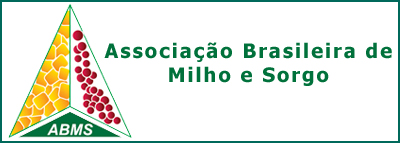ROCK PHOSPHATE SOLUBILIZING MICROORGANISMS ISOLATED FROM MAIZE RHIZOSPHERE SOIL
DOI:
https://doi.org/10.18512/1980-6477/rbms.v13n1p69-81Palavras-chave:
Biosolubilization, Phosphorus, Zea maysResumo
The selection of microorganisms capable of solubilizing phosphorus (P) from rock phosphates (RP) may contribute to reduce the dependence of imported fertilizers in grain crops, reducing the costs of agricultural production, and also the environmental impacts. This study tested 59 microorganisms (46 bacteria and 13 fungi) isolated from maize rhizosphere for solubilization of two RP, Araxá and Itafós phosphate in vitro (PA and PI, respectively). Among the 59 microorganisms solubilizing PA, 51% of the bacteria and 8% of fungi were classified as efficient. For PI, among 18 isolates, 50% of the bacteria and no fungi were efficient. There were significant differences in the availability of P among strains for both phosphates and most isolates evaluated for both types of rocks released more soluble P from PI than PA. Bacterial isolates CMSB58, CMSB32, CMSB20 and CMSB46 solubilized almost 20% of the P total in the PA and CMSB58, CMSB82, CMSB91 and CMSB48 solubilized more than 25% of the PI. The solubilizing activity of both phosphates was associated with a reduction of pH which suggests that the acidification of the culture medium can be one of the mechanisms involved in the solubilization of P. There was a dominance of the genera Burkholderia and Bacillus in the group of the most efficient bacteria and Talaromyces and Penicillium in the fungi group. The contribution of these strains to increasing the phosphorus nutrition of grain crops should be investigated further by in vivo experiments.
Downloads
Publicado
Como Citar
Edição
Seção
Licença
Autores que publicam nesta revista concordam com os seguintes termos:- Autores mantém os direitos autorais e concedem à revista o direito de primeira publicação, com o trabalho simultaneamente licenciado sob a Creative Commons Attribution License que permitindo o compartilhamento do trabalho com reconhecimento da autoria do trabalho e publicação inicial nesta revista.
- Autores têm autorização para assumir contratos adicionais separadamente, para distribuição não-exclusiva da versão do trabalho publicada nesta revista (ex.: publicar em repositório institucional ou como capítulo de livro), com reconhecimento de autoria e publicação inicial nesta revista.
- Autores têm permissão e são estimulados a publicar e distribuir seu trabalho online (ex.: em repositórios institucionais ou na sua página pessoal) a qualquer ponto antes ou durante o processo editorial, já que isso pode gerar alterações produtivas, bem como aumentar o impacto e a citação do trabalho publicado



